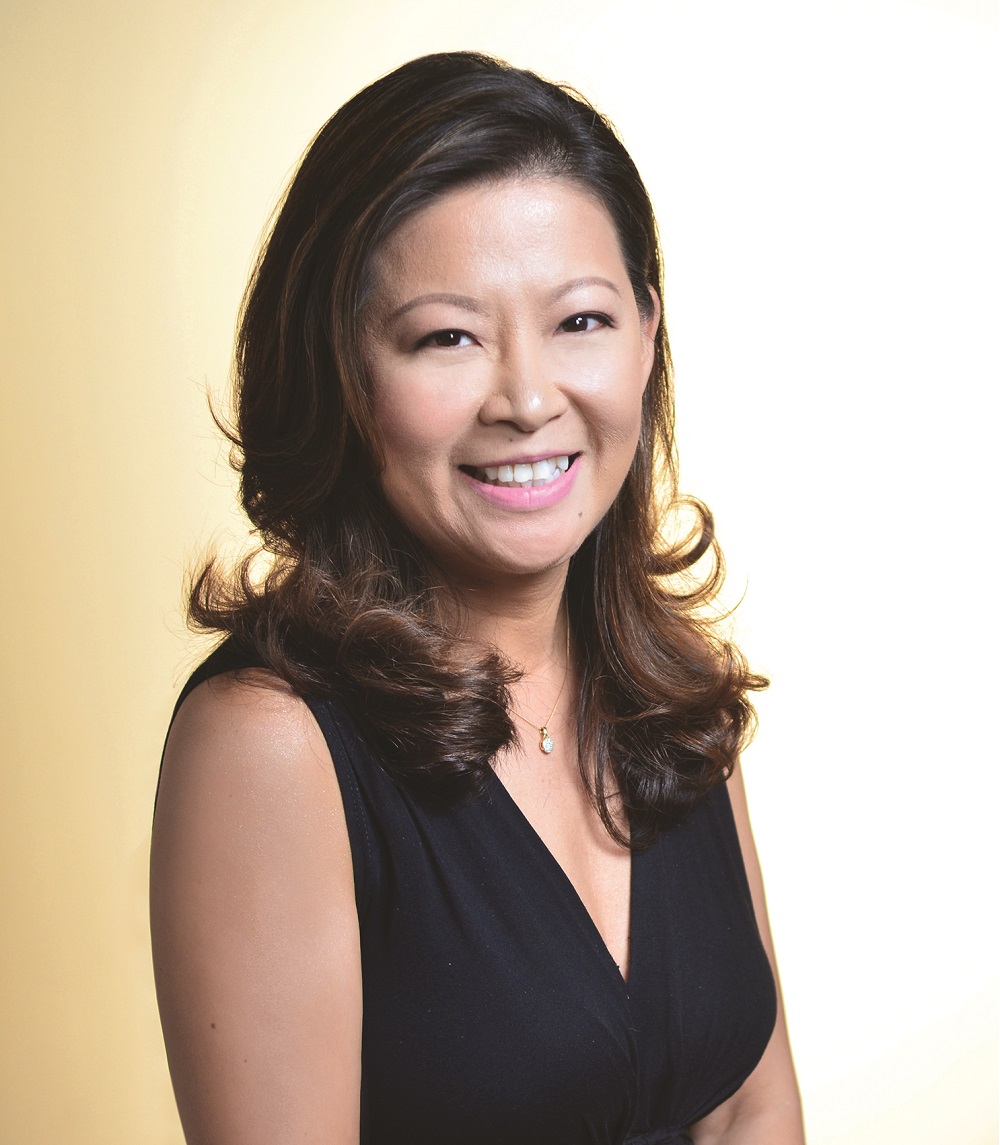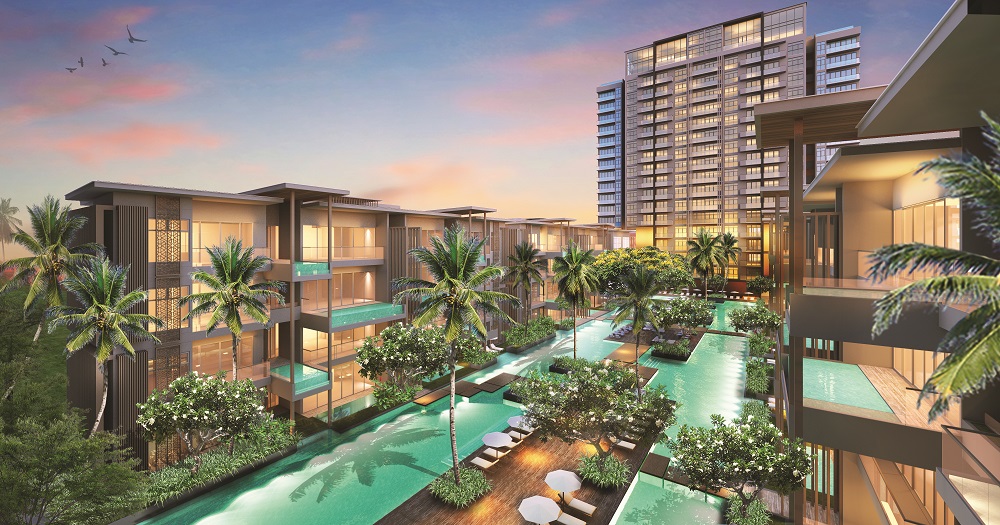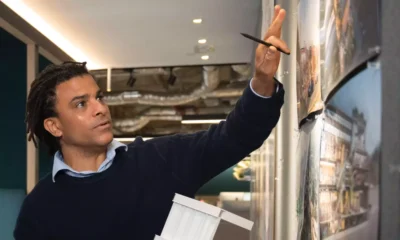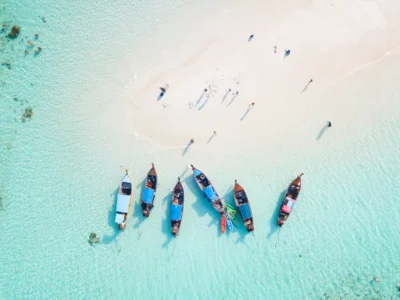A milestone for the Philippines’ hospitality industry

Hospitality maven Cyndy Tan-Jarabata’s idea of decompressing is jetting off to Panglao in Bohol, in the Philippines’ central island-group called the Visayas, and then to jump into the blue, sans breathing equipment.
Freediving, a stress-reliever started during a particularly challenging year, recently hit the 20-meter milestone—a clear and specific goal Tan-Jarabata methodically worked to meet, even enlisting the expertise of champion Filipino freediver and national record-holder Martin Zapanta.
She’s understandably over the moon. “Freediving has one of the highest mortality rates of any extreme sport in the world,” says Tan-Jarabata, in a way that reveals the grim little factoid is exactly what draws her to the sport. “I’m a risk-taker. I dive because it gives me the freedom to explore.”
In many ways freediving and all that it implies—the limit-pushing sense of daring, the single-mindedness and rigor in training—captures the guiding ethos behind Tan-Jarabata’s stellar career in hospitality.
At only 27, she became sales and marketing director of The Bellevue, then a new hotel in Filinvest City, south of Manila. Shortly after, she took the reins as general manager, becoming the Philippines’ first female GM of a five-star property.
In 2008, Tan-Jarabata struck out on her own when, along with brother Tyrone, she set up Tajara Leisure and Hospitality Group. The Philippines-based consulting and development firm guides clients through hotel and leisure property ventures.
I’m really Miss Philippines. Any chance to enlighten prospective investors on the investment climate, I take. Presence is important, and promoting the country pays off
They’ve worked with such global brands as Oakwood, Best Western, Erawan and Red Planet hotels, and independent properties including The Lighthouse Marina Resort, a sailing-themed hotel in Subic Bay; the former Mandala Spa and Boutique Residences in Boracay, an award-winning wellness retreat; and Kandaya Resort Cebu.
Among her latest clients, The Residences at The Sheraton Cebu Mactan Resort—an upscale residence tower with the DNA of a luxury tropical resort in Mactan Island—is “the first of its kind in the Philippines, and the first Sheraton Residence in Southeast Asia.”

Be it her work in hospitality or foray into freediving, Cyndy Tan-Jarabata applies the same guiding ethos: fortune favours the brave
Few experts have gained as much insight into the Philippines’ hospitality industry as Tan-Jarabata, who also advises clients around Asia on investments in the country. It’s no surprise then that she is an oracle on trendspotting and the rise of hospitality investment in her home country. “I’m really Miss Philippines,” she jokes. “Any chance to enlighten prospective investors on the investment climate, I take. Presence is important, and promoting the country pays off.”
Can you describe the service design of Tajara Leisure? Why set it up this way?
After years in hospitality, I noticed a gap: a lot of developers weren’t really hearing the market, and therefore failing to deliver what it wanted. Having opened many properties, I had developed a certain intuition—I knew what worked, what didn’t, and I could predict what was coming before a concepted existed in the market. So when my brother and I set up Tajara Leisure in 2008, we didn’t want it to be an ordinary consulting company advising clients on a few aspects of a new venture. We took on a holistic approach, wherein part of our engagement has always been to look at the concept and design of the project. We always start with the big question: Is this really something the market needs?
Is there a particular trend that’s shaping up to be big?
We’re seeing a wave of unconventional hotels because of disruptors like Airbnb. Airbnb has been so successful because they offer something the market craves. People want the experience of living as the locals do, in spaces in residential areas that have retained a more local flavour compared to a central commercial district. Big hotels tend to miss out on that game.
Unconventional hotels are big on experiential design—they focus on design-driven common spaces that are all about getting people to connect. Part of that is locating in places that, while slightly inconvenient, are so interesting people will gladly go out of their way to see them.
Which brands have been quick to catch on?
A number of big names have responded by creating spinoff brands—Marriott has Moxy, Accor has Jo&Joe, Holiday Inn has Indigo. My favourite is citizenM from Europe, which recently opened their first Asia property in Taipei’s Ximending area. The rooms are small, but the spaces are beautiful. They’ve overhauled the idea of a hotel lobby and turned it into a more social space, like a living room, and use technology to maximize the efficiency of checking in. The whole property features a lot of contemporary art—from photos to installations—by big-name local artists. The space offers a deeper experience of the destination. It’s branded service, so you know it keeps to a particular standard, but it also feels like a one-off property because of the details tying it to its location.
What’s driving this trend in the Philippines?
A healthy tourism sector, mostly. The country targets to attract seven million foreign tourists, but at the moment we have 72 million domestic travellers. That in itself is a large and lucrative market.
We have a strong millennial segment that loves to travel. They’re spending funds less on acquiring things like cars and houses, and more on interesting experiences, going places, and meeting new people. But it’s not strictly the millennials who move a lot. Because of budget airlines like Cebu Pacific making travel accessible, the population of Filipino travellers has swelled. More people, not all millennial, are traveling. It’s how we live our lives now.
At last year’s Asia Tourism Forum, you mentioned more global brands have entered the Philippine market. These brands have been “Philippines-shy” before—what’s changed?
We used to be ‘out’ and now we’re ‘in’. In the past, a lot of it had to do with perceived political stability. But now I think foreign investors realize that life goes on no matter who’s in power. Plus, these global players are noticing the robust domestic market and want to be a part of that.
More: Where ultra-rich Asians will invest in property in 2019
Among the drivers of the country’s growing hotel sector has been new money diversifying business portfolios. What are these new hotel owners bringing to the table?
There’s a new generation of well-informed owners who take the time to educated themselves, but the nice thing is they believe in experts and consultants. If they want to get some scale or compete in the market, they need all the right perspectives. They’re very bullish.
So many of them are very mindful of sustainability. A first-time hotel owner I was working with said he wants his property to be LEED-certified because he wanted that to be part of his brand proposition. A lot of owners are also very conscious of design. This is the golden age of travel after all, and many of them are seasoned travellers hoping to replicate or reinterpret what they see abroad back home.
One of the bigger trends have been mixed-use developments—what kind of impact do they have on big cities?
In creating multi-hubs within a city, property firms are changing the way we live, our mindset. Now it’s possible to stay in one place instead of spreading your energies across a city. You can live in one hub within a massive metropolis because you’ll have everything you need within walking distance, and with the time you save travelling from one point to another, you free yourself up for other things. At the same time, thanks to technology, it’s possible to not stay in one place and be everywhere and still be productive. I think it would be stupid to not take full advantage of technology. I do have an office, but I tell my administrative people, “You know you’re doing your job well when you don’t see me in the office.”
This article originally appeared in Issue No. 152 of PropertyGuru Property Report Magazine
Learn more about the PropertyGuru Philippines Property Awards here: http://www.asiapropertyawards.com/philippines-property-awards/
Recommended
Meet the architect transforming Asia’s retail spaces with nature-inspired designs
David Buffonge, the cofounder of Hong Kong-based Lead8, has strong opinions on how to improve built environments around Asia
6 sights to check out in Siem Reap, Cambodia
Cambodia’s “temple town” is bolstering its touristfriendly attributes with new infrastructure and residential developments
Inside Asia’s luxury resort residences that are redefining high-end living
Asia’s resort residence market is witnessing a shift as investors eye larger, multifunctional units
How joining BRICS could give Thailand and Malaysia a new economic edge
Thailand and Malaysia are eyeing membership in the bloc of emerging nations






